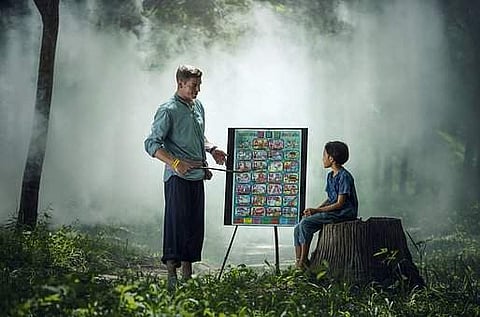Sex education: The need of the hour
It was in 2009 when I passed out from school and there was nothing called sex education back then. I remember how the teacher did not lift his head even once to address us while taking the class on human reproduction. And all talk around menstrual cycle was hush-hush. But in the past few years, awareness about the importance of sex education has been recognised tremendously. As a country, it felt we were moving forward, especially when on September 6, 2018, a five-judge SC bench unanimously passed the decision to decriminalise Section 377 and make gay sex legal. But few days ago, the RSS affiliated Shiksha Sanskriti Utthan Nyas announced that the phrase ‘sex education’ should not be used and that sex education should not be made mandatory for all students, but only advocated on a ‘need-based counselling’ basis.
The youth, on the other hand, are appalled by this move. Zeeshan Munir, a PhD scholar from JNU says, “In my school in Muzaffarpur, Aurangabad, sex education was non-existent. However, in the present context of globalisation I believe it assumes utmost importance. There is a need to have sex education compulsorily from early stages so as to familiarise children about various ancillary issues. Changing the name from sex education won’t make much difference. On the contrary, any Hindi word for sex is not commonly used, thus diluting the whole purpose.”
The very idea of refusing children sex education shows its utmost necessity, says Kshitij Rajoria, Btech fourth year, DIT University, Dehradun. “These people who believe in cultural progress are not able to understand that a country can’t progress when their children, who are often confused about the changes that occur in their bodies, are vulnerable to misguidance. It is shameful that we are moving in the direction of bringing up a generation of people who are not able to focus on their lives just because they can’t understand their hormones. Protesting against sex education should be on the least of all priorities for a nation that has so much to worry about.”
But Shiksha Sanskriti Utthan Nyas’s stance doesn’t come as a surprise to many like Yash Raj, 20, a third year Chinese student. “We all know about the regressive mindset of the RSS. The recent clampdown of different progressive universities is evidence of this thought process. We know how important it is right now when more and more youngsters today are engaging in sexual activity with an open mind. It’s nothing we should be ashamed of,” says Raj, adding, “Sex education imparted in a right manner will lead to a space of equality of sexes. If you teach kids that it is not only about the man’s enjoyment, they’ll have a better understanding and a different attitude towards women.”
Even the medical community believes that sex education is indispensable. Dr Rita Bakshi, senior gynaecologist and founder, International Fertility Centre, feels sex education in India is still stigmatised. “People from so-called ‘Modern Families’ still hesitate talking about sex with their children. In schools and colleges today, intimacy is on a rise in comparison to previous years. This necessitates that the children must be educated properly before they mindlessly indulge in such activities. They should learn the difference between wrong and right while their body is undergoing changes and hormones are developing.”
Unrealistic expectations
There is a dearth of information in the curriculum about intersex, sexual orientation, safe sex, safe contraceptive methods or relationships in general. Lack of these topics leaves many insensitive about relationships and the LGBTQAI community to an extent that many Indians still find it “unnatural”, believes Delhi-based Adhitya Prakash, a MA student. “In India, knowledge about sex is mainly gained from porn, and men especially end up having unrealistic expectations about sex from their partners. Watching porn is not wrong, but since Indians have very less knowledge about sex, they tend to believe the exaggerated version of sex in pornographic videos to be true.”
This kind of curiosity and inquisitiveness amongst young ones is due the lack of openness about such topics from parents and teachers. “With so much exposure, it is important to truly make the child understand about sex. It is important to remove the prejudices and preconceptions around this natural process while making them understand the emotions and feelings during sexual intercourse,” adds Dr Bakshi, on why mandatory sex education in schools is the way forward.

